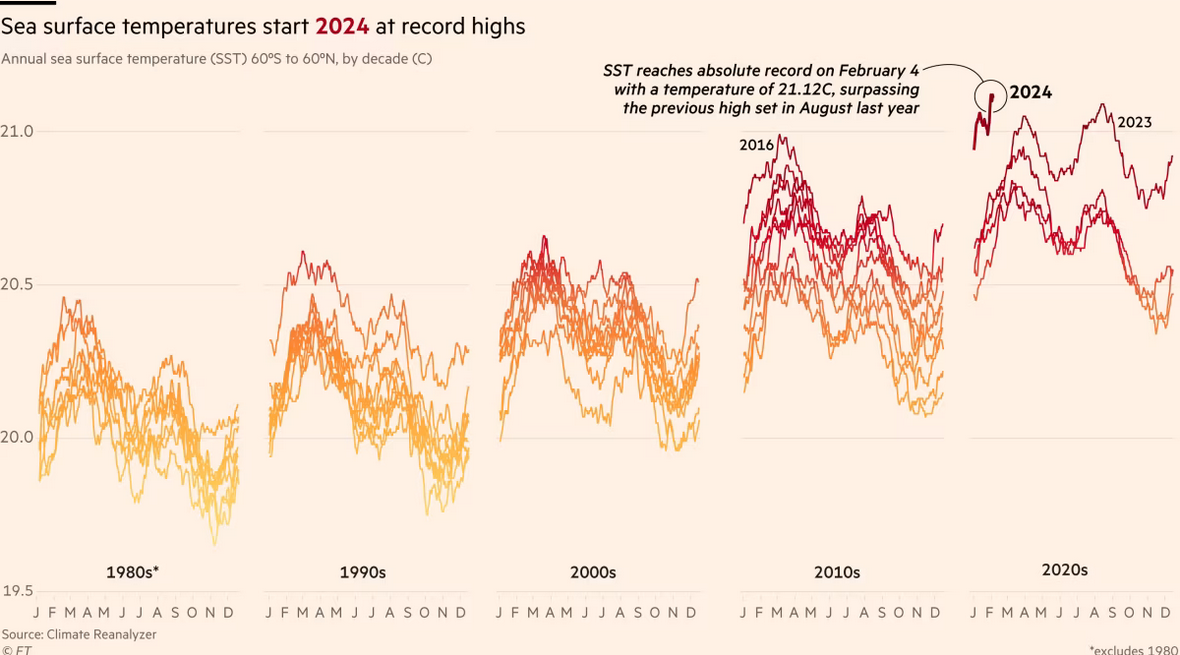February 8, 2024
Worker's market-derived bargaining power is waning
The short-lived tightness in the labour market that has sustained wage increases in the non-union sector is subsiding.
Layoff season has arrived for firms facing increasing competition, debt payments, and poor performance.
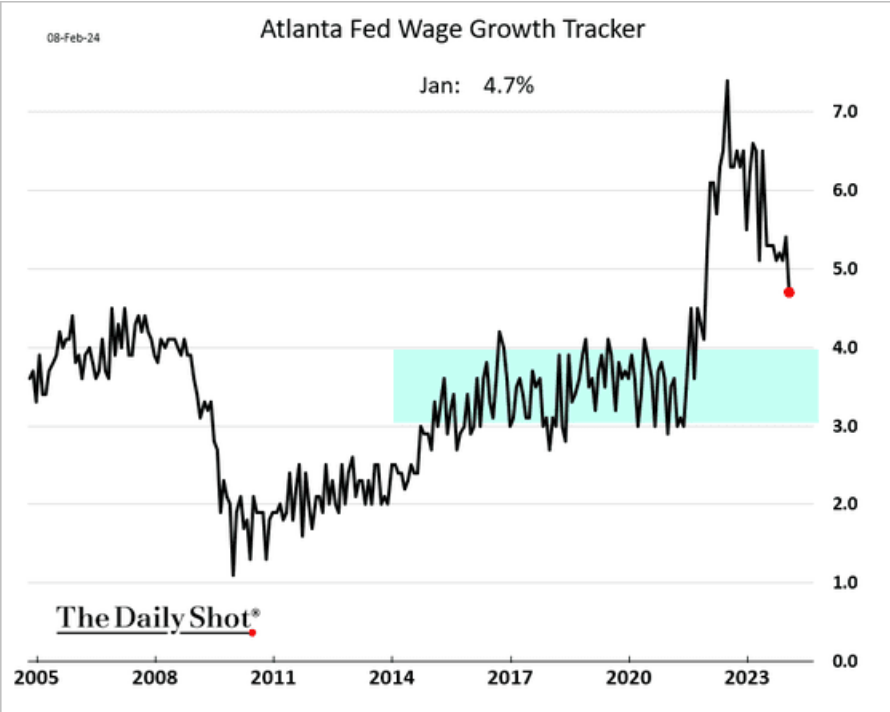
If you look at the productivity-adjusted wage growth, we see it has actually returned to pre-covid trends.
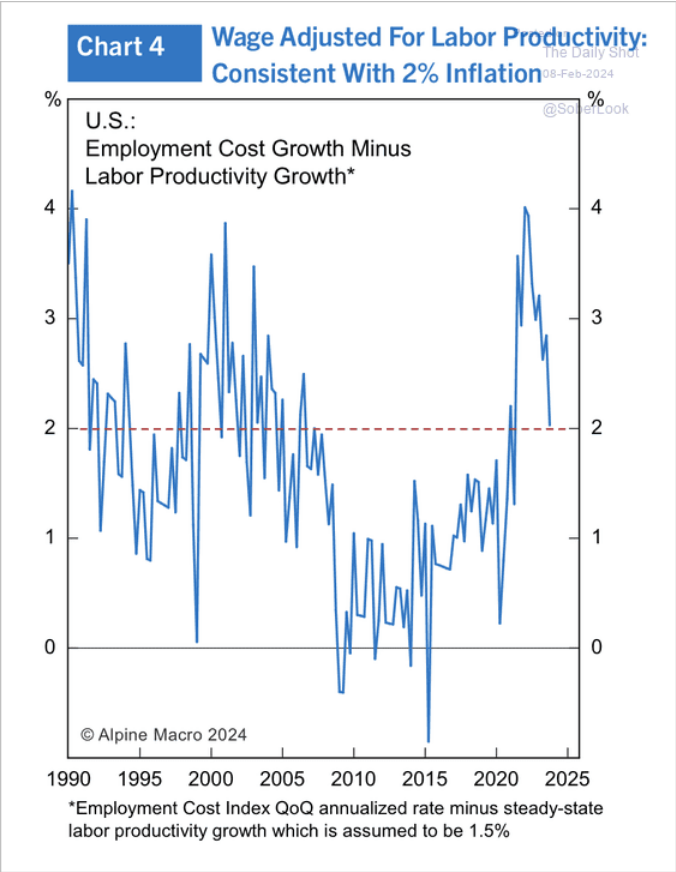
In Canada, wages are still being pushed by unionized workers who have had to wait to get a chance to negotiate their wages in the face of inflation. However, with inflation cooling and labour market loosening, it is going to be more of a fight to sustain appropriate wage adjustments.
Unemployment in Ontario is up and employment is down through the end of 2023. Long-term unemployment is rather steady, showing churn in the labour market is happening but is not resulting in wage increases seen during the end of 2022 and the beginning of 2023.
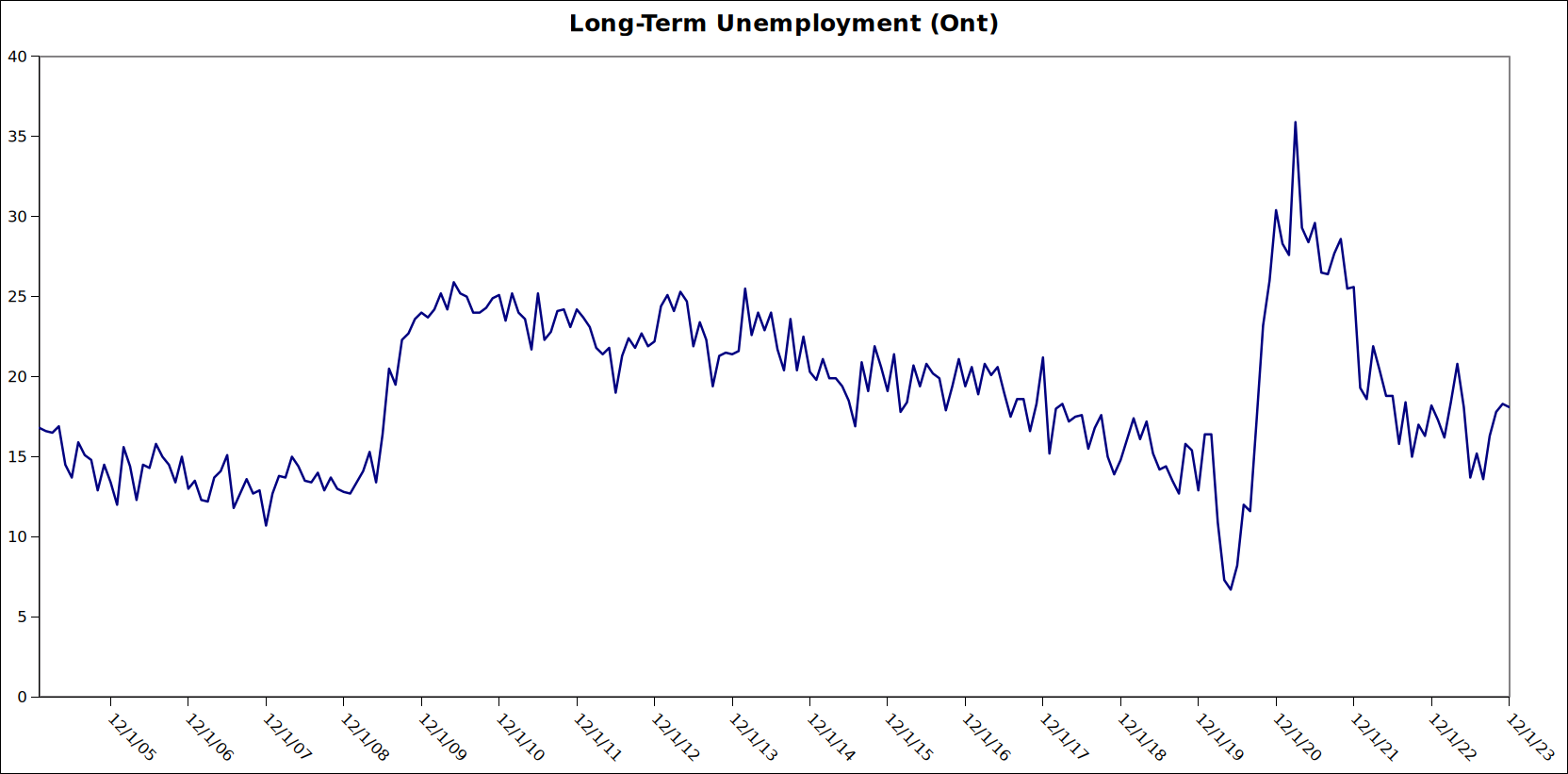
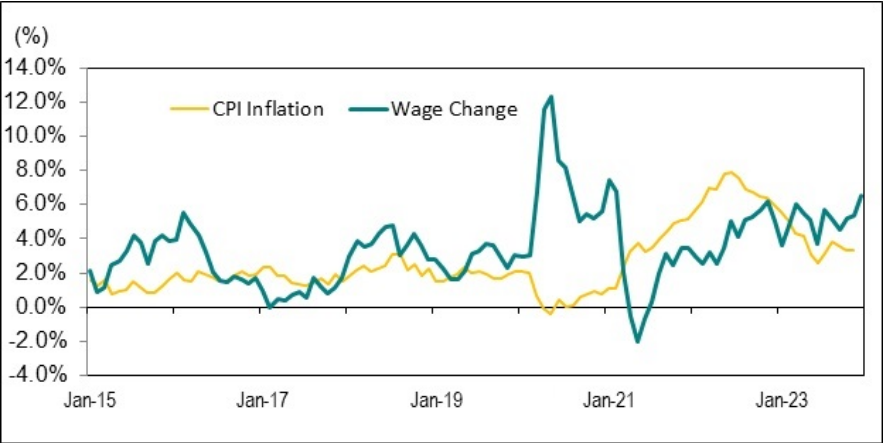
Wage increases also aligned with age with younger workers getting 5% wage growth in December versus 8% for older workers. This shows that competition for lower-skilled work was already keeping a cap on wage growth at the end of the year.
USA Layoffs are up at tech firms and banks at the beginning of 2024 with other employers finding it easier to lay off workers without concern they will not be able to find a replacement according to the Cleveland Federal Reserve. Some poorly run banks and IT firms have been able to enforce return to office mandates as workers are (slightly) less likely to leave.
However, this is just a turning point. We will still have some time before workers lose all their power over wages and job changes. Also, the labour market is not uniform as higher skilled workers are still able to leverage the sustained tightness in some segments of the market such as skilled trades.
Climate warming
With yet another "stark warning" (even more stark) from scientists saying that we are passing thresholds as if they are closed rest-stops on the highway, it almost feels like we are not doing much at all to address climate change.
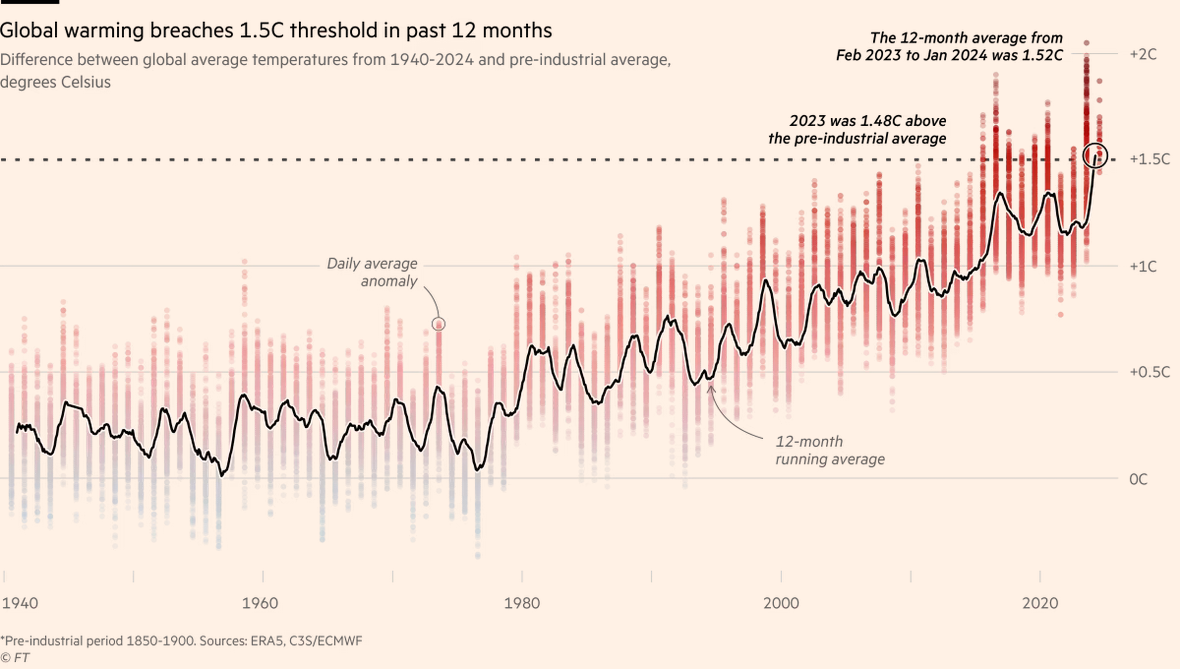
the global mean temperature for February 2023 to January 2024 was the highest ever at 15.02C, 1.52C above the 1850-1900 pre-industrial period.
January marked the eighth month in a row that temperatures were the warmest on record
